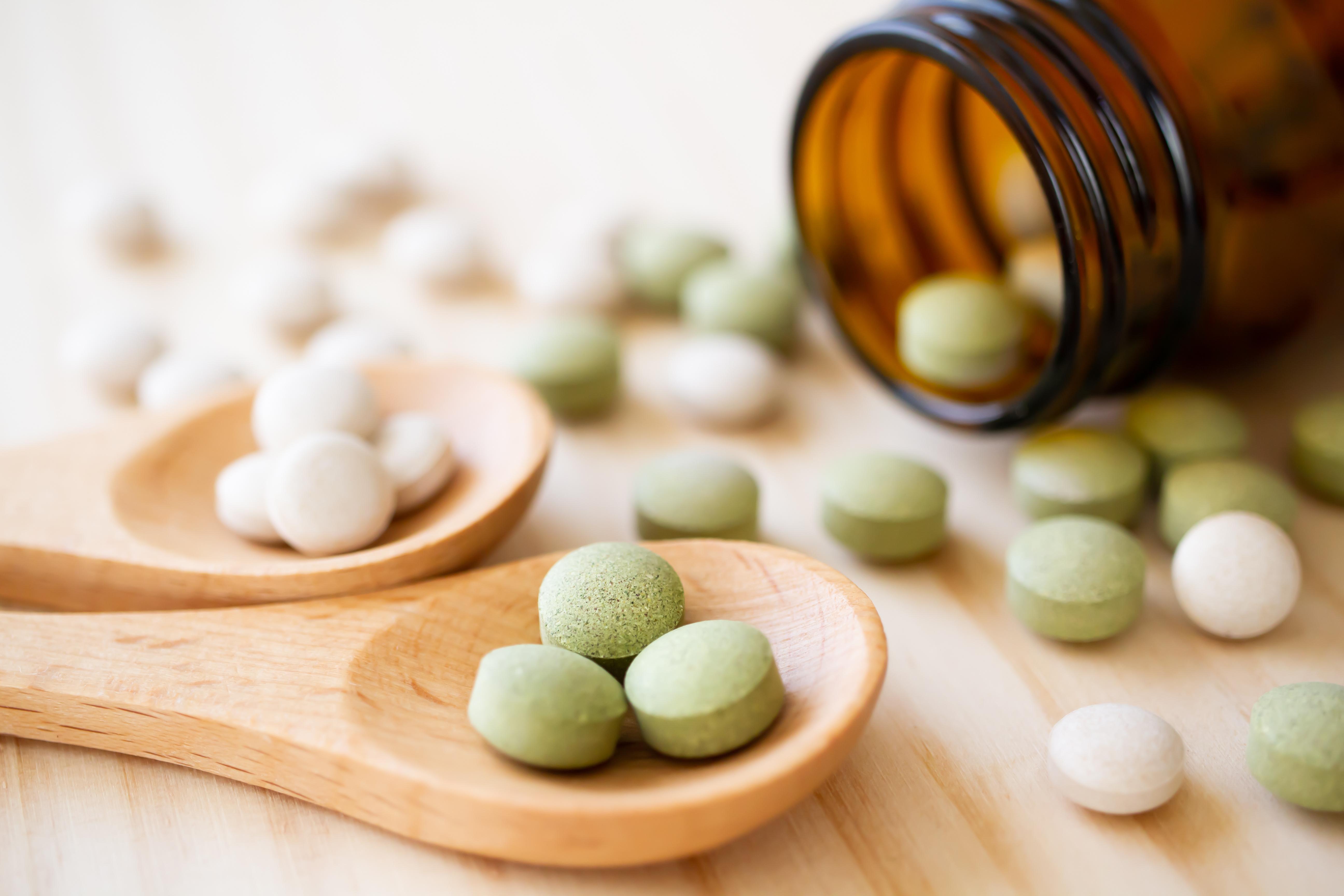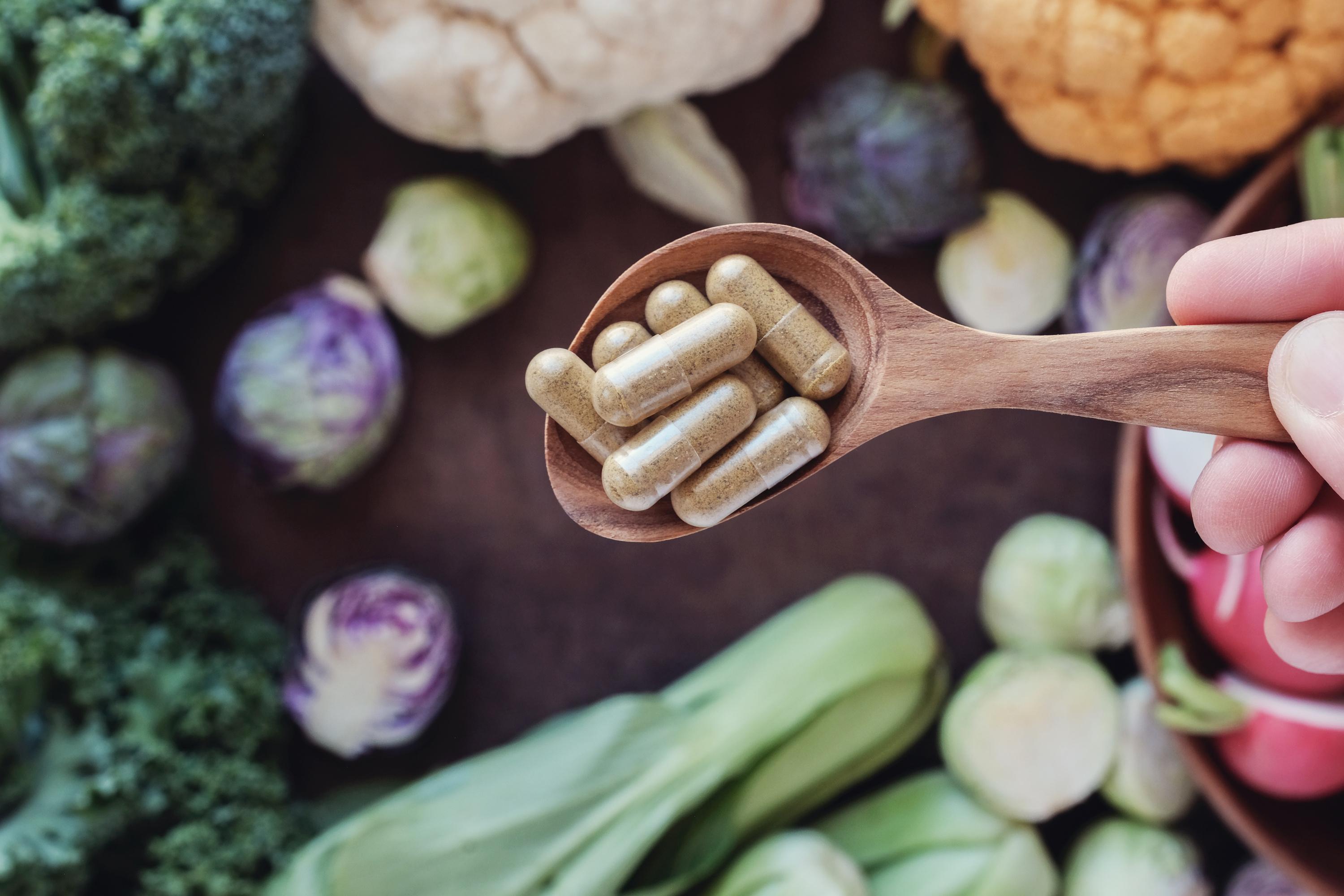
6 minute read
Science-Backed Supplements for PCOS
By Emily Johnson, Founder of Hey Cysters
4 Noteworthy Supplements to Help Manage PCOS Symptoms
Advertisement
What is PCOS?
We have probably all heard of PMS (Premenstrual Syndrome). The mood swings, crying, anxiety or depression. The dreaded cramps. The fatigue... You know the type where you yawn constantly at work and could sleep for days. We can ’t forget the ravenous food cravings. Did you know that a serious hormone disorder called PCOS (Polycystic Syndrome) could also mimic PMS symptoms?
Polycystic Ovary Syndrome (PCOS) affects up to 15% of reproductive-age women in the U.S. PCOS is a serious genetic, hormone, metabolic, and reproductive disorder that can lead to lifelong complications. If you are diagnosed with PCOS you could be at risk for developing psychosocial disorders, cardiovascular disease, type 2 diabetes, obesity, infertility, endometrial cancer, and other conditions. PCOS is the leading cause of the most common endocrine (hormone) disorder in women and female infertility within the U.S. and other countries across the globe.

PCOS presents itself in many ways and is different for each woman. Women with PCOS may develop numerous small ovarian cysts which are collections of fluid (follicles) and fail to release eggs regularly. It’s very common for women with PCOS to have infrequent periods, prolonged periods, and/or excess androgen (male hormone) levels.
The cause of PCOS is still unknown.
such as type 2 diabetes (earlyonset as Insulin Resistance also known as Pre-Diabetes) and heart disease.
So, why does PCOS often mimic PMS?

Both PCOS and PMS are hormone imbalances. PMS typically shows its ugly head each month about a week before your menstrual period shows up. However, with PCOS it affects most women all month long and is much worse during your period. Women with PCOS may experience painful cramps, weight gain, hair loss (like male pattern baldness), irregular periods, heavy bleeding, hair growth (hirsutism), dark patches of the skin, acne, headaches, painful cysts, infertility, anxiety, or depression, fatigue, digestive problems, low sex drive, and insulin resistance.
There is currently no cure for PCOS.
Most women discover they have PCOS after they notice uncontrolled weight gain, or when they are trying to get pregnant. Though there is no cure, you can manage the symptoms with natural vitamins, minerals, and herbs. Listed below are the Top Four (4) Supplements and their benefits that have been heavily researched to aid in the symptom management of PCOS.
1. Inositol is widely known for its effects on increasing insulin sensitivity, ovarian function, as well as improving egg quality.
2. Ashwagandha is known to help balance cortisol levels to improve stress and anxiety which in turn can lessen the severity of PCOS.
3. Vitex is an anti-inflammatory agent that positively impacts acne, headaches, anxiety, infertility, and painful ovarian cysts.
4. Saw Palmetto helps by lowering testosterone and reducing androgen levels. If you suffer from hair loss or unwanted hair growth (hirsutism) this may be the supplement for you.
-Emily Johnson, Founder of Hey Cysters
1: Inositol and its effects on blood sugar
Inositol, also known as Vitamin B8, has shown benefits towards several PCOS/Hormone Imbalance Issues. Inositol has been known to help normalize ovarian functions to improve egg health and quality. It has very littleknown side effects, making it very safe for most people to consume. It can help fight depression/anxiety and improve the symptoms of insulin resistance.
2 Ashwagandha and cortisol levels
Ashwagandha is a root that has shown to provide positive health benefits to include reducing inflammation, improving brain function, reducing stress, and helping prevent stressinduced ulcers. Most importantly, for women, it can help balance cortisol levels (in the adrenals). High cortisol levels can lead to weight gain, another common symptom of PCOS.
3 Vitex and PMS Symptoms
Vitex comes from the berries of the Chaste tree and has been shown to improve PMS symptoms, such as stubborn acne and painful ovarian cysts, as well as improving fertility and menopausal symptoms.
Vitex aids in reversing hormonal imbalance caused by PCOS by acting as an antioxidant, which protects tissues from damage, and in turn blocks inflammatory responses. Inflammation along with hormone imbalance can indicate a more serious issue is present, such as insulin resistance, diabetes, heart conditions, and infertility. Reducing inflammation has positive effects on PCOS symptoms.
4 Saw Palmetto and Testosterone
Saw Palmetto comes from the berries of a palm-like plant commonly found in the Southeastern United States. Saw Palmetto can improve sex drive, reduce high levels of androgen and prolactin levels in women, as well as reducing testosterone levels.
Saw Palmetto works by blocking an enzyme that converts testosterone to dihydrotestosterone (an androgen). Dihydrotestosterone is what gives women who suffer from PCOS the more “ masculine” appearance, which includes hair loss (male pattern baldness), hirsutism (unwanted hair growth, such as facial hair), and acne. Blocking this enzyme also improves menstrual regularity, thus improving various symptoms of PCOS.

What now? Living with PCOS
Even though there is no cure for PCOS, living with PCOS does not define who you are as a woman. Utilizing the right supplements, coupled with a healthy, balanced diet, mind-body exercises (such as yoga, tai chi, and Pilates), and management of stress can improve your way of living with PCOS. Treating the physical symptoms of PCOS can help improve your overall mental health, give you the confidence you deserve, and allow you to be the woman you want to be.

“From one Cyster to another, I am here for you! YOU deserve it & you don’t have to go through this journey alone.
-Emily Johnson, Founder of Hey Cysters
MEET EMILY JOHNSON

Emily Johnson, Founder and CEO of Hey Cysters, was diagnosed with PCOS & insulin resistance in 2016 by a medical doctor. She suffered for years, all the way back to her teen years, with hormone imbalance, hormonal acne, painful cramps, insulin resistance, irregular periods, painful cysts, hair loss, etc. Emily did not want to take a daily prescription medication to treat her PCOS & insulin resistance which could possibly have terrible side effects. With the help of a few holistic-minded doctors, she obsessively researched natural vitamins, minerals, and herbs to overcome her health struggles.
Her healing came with an absolute determination to reach as many women as she possibly could with these natural solutions to help heal their bodies inside and out. Her passion is to encourage and inspire other women around the globe to find their healing too. As a result, she created a Private Facebook page for women called 'Hey Cysters' , to come together and support each other through their healing journeys. This is a safe place for women to come together to talk about periods, reproductive health, sex life, recipes, etc., and just do life together.










